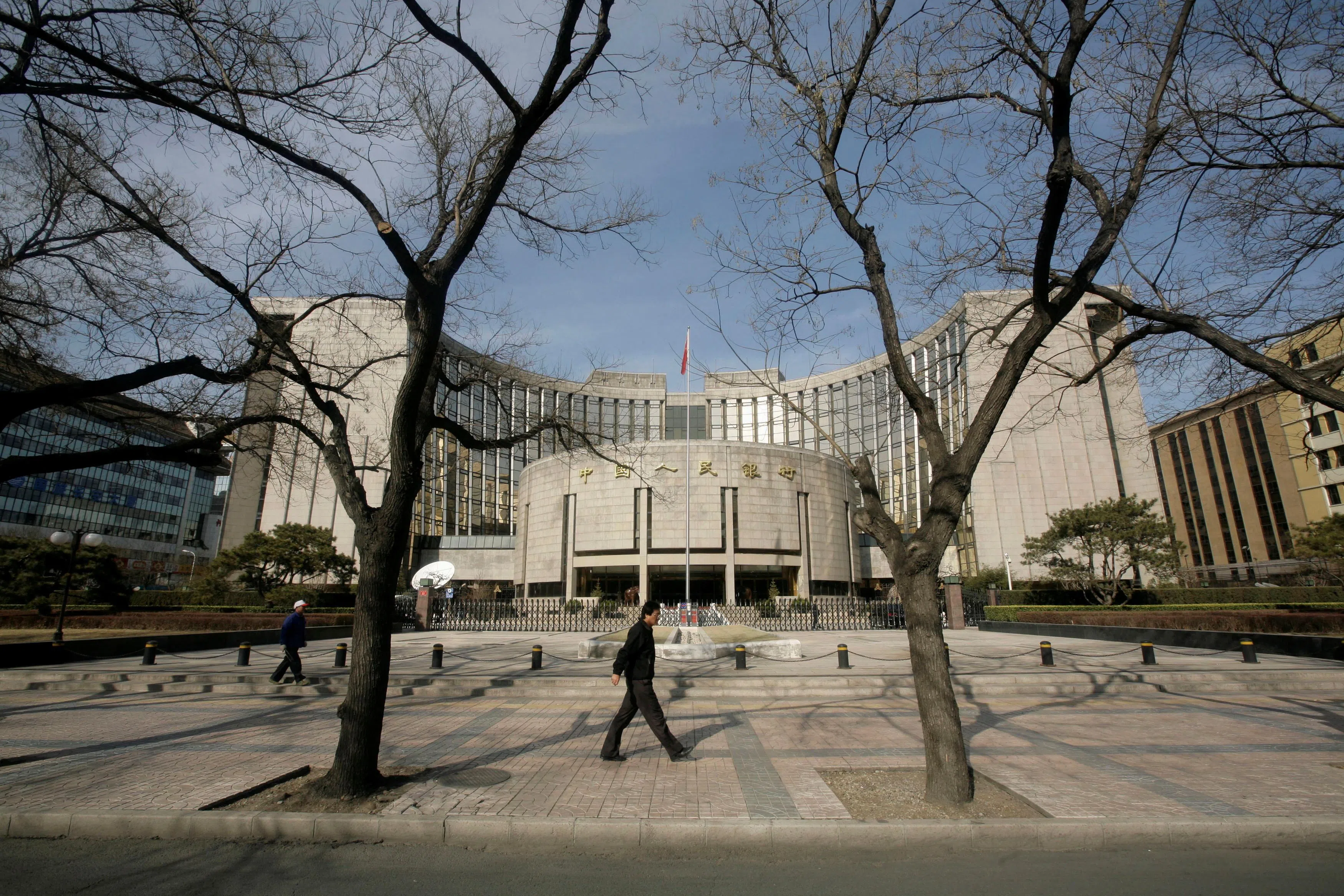China central bank wants to halt bond-buying spree, not join it
CHINESE markets are abuzz with talk that the central bank is about to start buying government bonds. The People’s Bank of China (PBOC) itself is grappling with a different problem: too many other people seem eager to buy them.
Short of alternative places to lend or invest money, banks have been piling into the risk-free debt issued by Beijing. A six-month rally pushed China’s sovereign yields to the lowest in more than two decades – making them an outlier in the global bear market, and spurring efforts by the PBOC to turn the trend around.
The central bank warned lenders in at least two provinces to curtail ultra-long bond investments, according to sources familiar with the matter. It’s also stepped up verbal pushback against the bond bulls. There are signs it’s had an impact: China’s 10-year yields are up about 13 basis points from last week’s low.
For the PBOC, there are plenty of reasons not to like super-low rates on public debt. They add to downward pressure on the yuan, which the central bank is trying to prop up. They reflect pessimism about the economy, which it’s trying to stimulate. And they might store up financial stability risks down the road, too.
All of this suggests – despite much recent hype – that the central bank is not likely to make the buying and selling of sovereign bonds a major tool for managing liquidity anytime soon, analysts say.
“There’s no need for the PBOC to unleash liquidity” because there’s plenty of it sloshing around the financial system already, said He Wei, an economist at Gavekal Dragonomics. “There’s no point in it buying sovereign bonds now.”
GET BT IN YOUR INBOX DAILY
Start and end each day with the latest news stories and analyses delivered straight to your inbox.
Any experiment with buying and selling bonds in the coming months will likely be in order to signal that such trades are an instrument at the PBOC’s disposal, and not because they are currently needed, he said.
‘Not aligned’
One PBOC concern is that banks are buying bonds with leveraged bets, which could create financial risks if yields rise sharply – roughly what happened in the US last year with Silicon Valley Bank.
It’s also likely unhappy with the market’s pessimism on longer-term economic growth as reflected by the low yields. That adds pressure for rate cuts by the central bank, a move it’s been resisting in order to protect the yuan.
Moreover, while yields on government debt – a risk-free interest rate – have been falling, the cost of other types of credit has stayed elevated. That’s weakened the effect of the PBOC’s previous rate cuts, according to Lu Ting, chief China economist at Nomura Holdings.
Essentially the problem is that monetary stimulus is not breaking through to the real economy in the form of extra credit to lift investment and spending. Instead, with households and businesses reluctant to borrow after a real estate slump, it’s being used to buy financial assets such as bonds.
Beijing has been focused on this issue in recent months. The PBOC has warned about it, and Premier Li Qiang – in his annual report delivered in March – vowed to “prevent funds from sitting idle or simply circulating within the financial sector”.
There are also signs of tension between the central bank and the Ministry of Finance (MOF).
The latter has sounded eager for the PBOC to start using the bond-buying tool. From the Ministry’s point of view, central bank purchases that drive yields down could help save money in future bond sales.
The PBOC has pushed back with hints that the Ministry’s slow rollout of bond sales this year, by reducing supply, is one reason yields have plunged. Steadier issuance on a larger scale is required before the central bank can step in to help finance it, the PBOC-backed Financial News wrote in an article last week, citing unidentified experts.
“The PBOC’s considerations are more about financial stability, while the MOF wants to sell bonds at a cheaper cost,” said Gavekal’s He. “At least for now, their needs are not aligned.” BLOOMBERG

